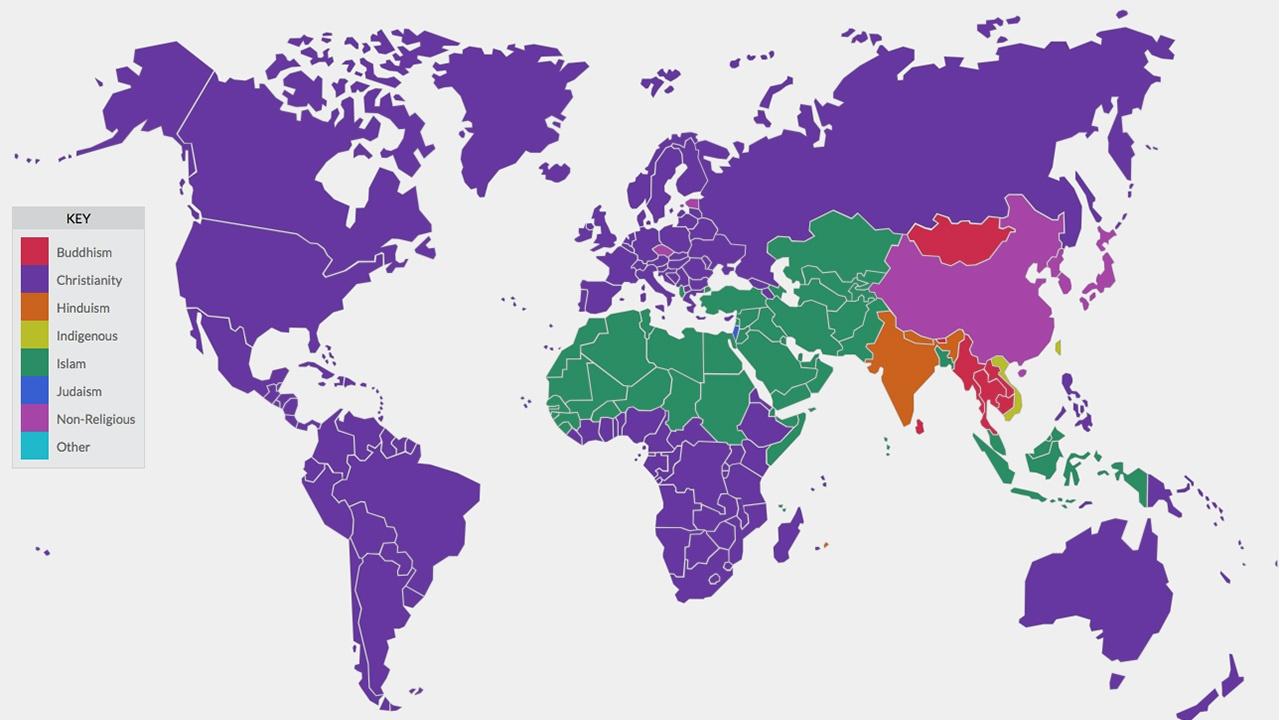The 10-Minute Rule for Zoroastrianism
Wiki Article
Confucianism for Dummies
Table of ContentsFacts About Religion RevealedChristianity Can Be Fun For AnyoneThe Definitive Guide to ConfucianismThe Ultimate Guide To SanteriaJainism - The Facts
Can you recognize the icons of the 12 significant religions? I have educated Major World Faiths in high school as well as in college.People might know something concerning a couple of religious beliefs various other than the one they belong to. Religious beliefs: Definition, Faith can be specified as an orderly system of ideas by fans, ceremonies, practices, and praise that are focused around one supreme God, or deity. Faith can also be explained as man's effort to gain the greatest possible great for himself by living his life the finest means he can according to some spiritual advice.
Those twelve are the ones that are frequently consisted of in world religious beliefs studies and also researched in globe religious beliefs courses. The twelve major faiths are detailed in alphabetical order in the chart listed below along with what each religion has in typical. The majority of religious beliefs have the following things in common: A supreme being to prayer Spiritual texts for guidelines A principle to comply with for guideline on just how people should connect to others An expedition that may or may not be called for by some faiths Signs of the 12 Major Faiths, What Religions Share, Religion, Divine Being or Supreme Being, Sacred Writings, Principle, Expedition, Monotheistic God, Writings of the Bb and also Bah' u' llh, Honored is he who preferreth his sibling before himself.
The Iranshah Atash Behram, As you can see from the chart above, every religious beliefs has a principle that claims basically the very same thing despite the fact that it is not worded precisely alike. The Principle in all religious beliefs urges people to deal with others as they want to be treated.
4 Simple Techniques For Wicca
Casual and Unorganized Religious Beliefs If you are questioning why there are just 12 significant faiths while there are hundreds of religions on the planet, the answer is rather basic - rastafari. A faith is taken into consideration significant not because it is considered as being more special than another. Instead, it is based on the number of existing adherents because particular religion.
As a result of the method questions are phrased on the surveys, it is difficult to obtain an exact variety of adherents, particularly on informal as well as unorganized religions.
Something failed. Wait a moment as well as attempt once more Try again
You might have listened to the notion that all religions are basically the exact same. I have encountered 3 primary manner ins which this concept has been highlighted. Which of these descriptions appears the most likely to you? Blind men explaining an elephant. Different religions can be compared with a team of blind males tasked with attempting to describe what an elephant is like.
Get This Report about Wicca
The one near the trunk wraps up that "An elephant is useful reference like a tube" while the one near the leg concludes: "No, an elephant resembles a tree". The essence is that every one of the blind guys are explaining the exact same point, albeit imperfectly based on their very own individual experience.Here is a third way of highlighting why/how all religious beliefs are basically the very same. Supporters of this sight show that all faiths educate primarily the exact same 'Principle': "Do to others what you would certainly have them do to you (paganism)." The implication is that all faiths basically hinge on this guideline, which no various other basic training is a lot more crucial or a lot more main per faith than how we treat each various other.
I think there is something completely different that is typical to all religious beliefs. Right here what I assume all religions have in common: similar concerns Spiritual ideas are basically answers to the best concerns concerning life: What is best truth? In responding to these inquiries, faiths establish themselves apart from each various other.

The 6-Minute Rule for Religion
this However, I think we can end that there is a significant amount of variety in religion over the supreme questions of life. Undoubtedly God can't both be an impersonal unity, 2 opposing gods, and also one transcendent God at the same time. These groups are mutually exclusive. Where does the suggestion that all religions are essentially the exact same come from? I have 3 concepts on this: People that tend to paint all religious beliefs with one brushstroke are often personally uninterested in religion.The belief that all religions are the exact same is commonly (although more information not constantly) held by people who do not directly practice any kind of faith. Religious people that try to advertise the concept that all religious beliefs are generally the exact same (such as Baha'is) have to compromise some of the significant beliefs of each faith in order to do so.

Excitement About Mormons
2nd Principle: Respectfor Human Being Dignity Each time when human dignity is being violated in numerous types in nations and cultures throughout the globe often in the name of faith it is necessary that we re-emphasize this crucial value and, more importantly, apply it in our daily lives. All religions identify humans as fundamentally equivalent, whether this is comprehended as a repercussion of their status as children of God (Judaism, Christianity, Islam), of their indication of the Divine (Hinduism), or of their typical initial nature as well as need for joy (Buddhism).Report this wiki page